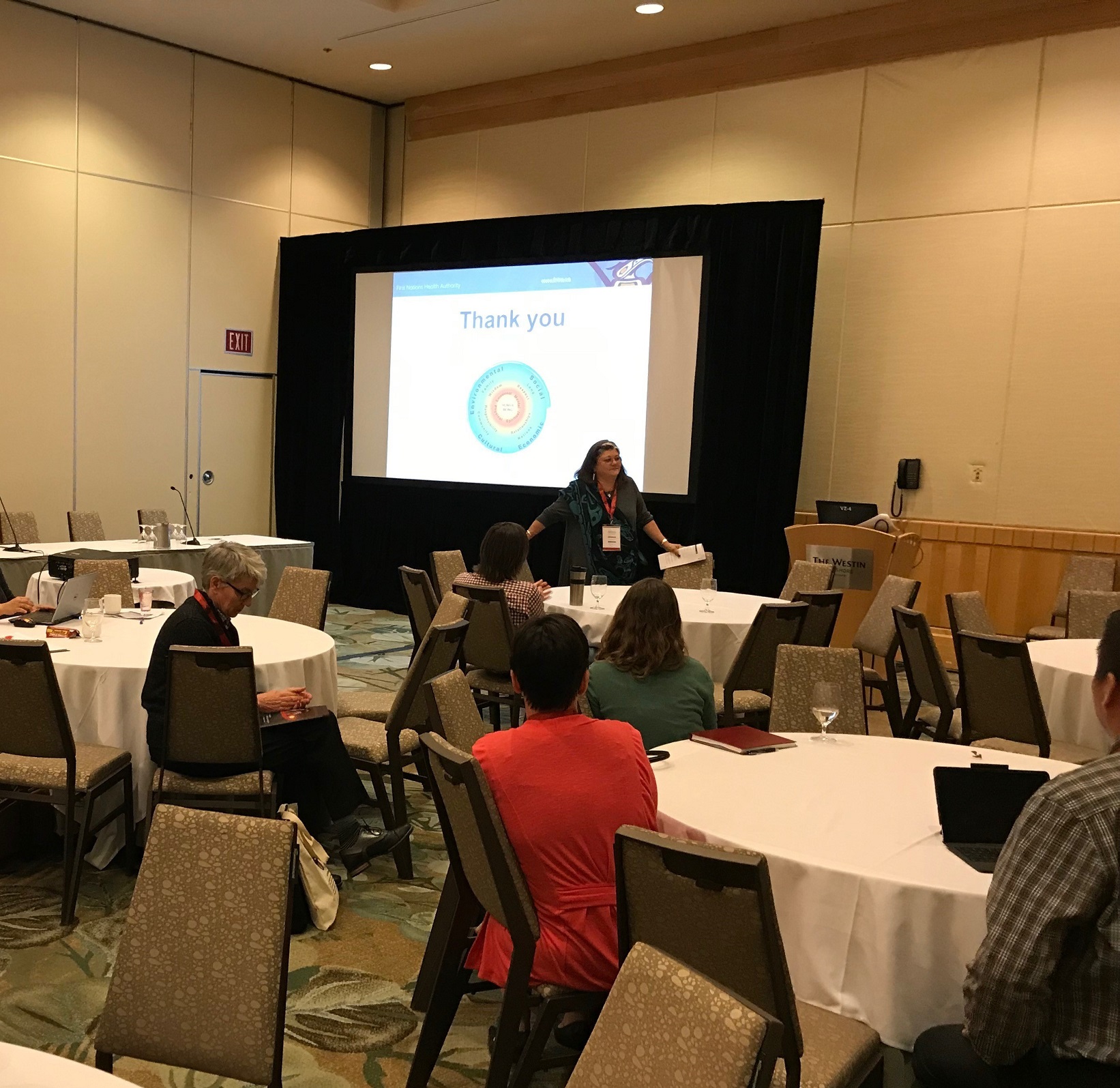
Indigenous
people are disproportionately impacted by the opioid crisis, overdosing
and dying at much higher rates than non-First Nations people in British
Columbia.
Speaking at a session during Gathering Wisdom IX, Dr.
Shannon McDonald outlined the steps the FNHA is taking to address the
ongoing challenges.
Dr. Shannon McDonald, acting Chief Medical Health
Officer with the FNHA, started by sharing data collected by the BC
Coroners Service and released in a FNHA report last year. It revealed
that while First Nations account for just 3.4% of BC's population, they
suffer 14% of overdose events and represent 10% of overdose deaths.
"Those are scary numbers, and it's not getting better. It's getting worse," she said.
Another
alarming fact is that among First Nations, there is an almost equal
number of overdoses and deaths among men and women. This is very
different than non-First Nations, where men are much more likely to be
impacted by overdoses.
"As Grand Chief Doug Kelly says, we have a
pain problem, a trauma problem among our young women. We need to find
ways to deal with that trauma," Dr. McDonald said.
The FNHA takes a
harm reduction approach that aims to keep people safe when using
substances, create an accessible range of treatment options and support
people in their healing journeys.
"We have to keep people alive long enough to get them into treatment," she said.
The FNHA has developed a wide-ranging plan to tackle the opioid problem from a number of angles.
Among the steps outlined in the response plan:
•
Expanding access to Naloxone kit distribution and training. Nasal-spray
naloxone is now a non-insured health benefit but access is not yet
wide-spread
• Expanding access to opioid agonist therapy like
suboxone, which acts as a replacement for street drugs. A challenge is
making this more accessible for those outside urban areas
• Intensive case management is being rolled out to offer better support for drug users
• Expanding clinical pharmacy services through telehealth
• Information campaigns that trigger conversations in the community and help model positive behaviour
•
More peer engagement programs. One, called Unlocking the Gates,
provides peer mentoring and support for those leaving incarceration, a
particularly vulnerable time.
These are in addition to existing
programs and services available to help people with their substance use
issues and healing journeys. Dr. McDonald acknowledged there are still
many challenges as we struggle to cope with this difficult issue but
steps are being taken to address them.
She added that new overdose data is being collected and should be available for release later this year.

